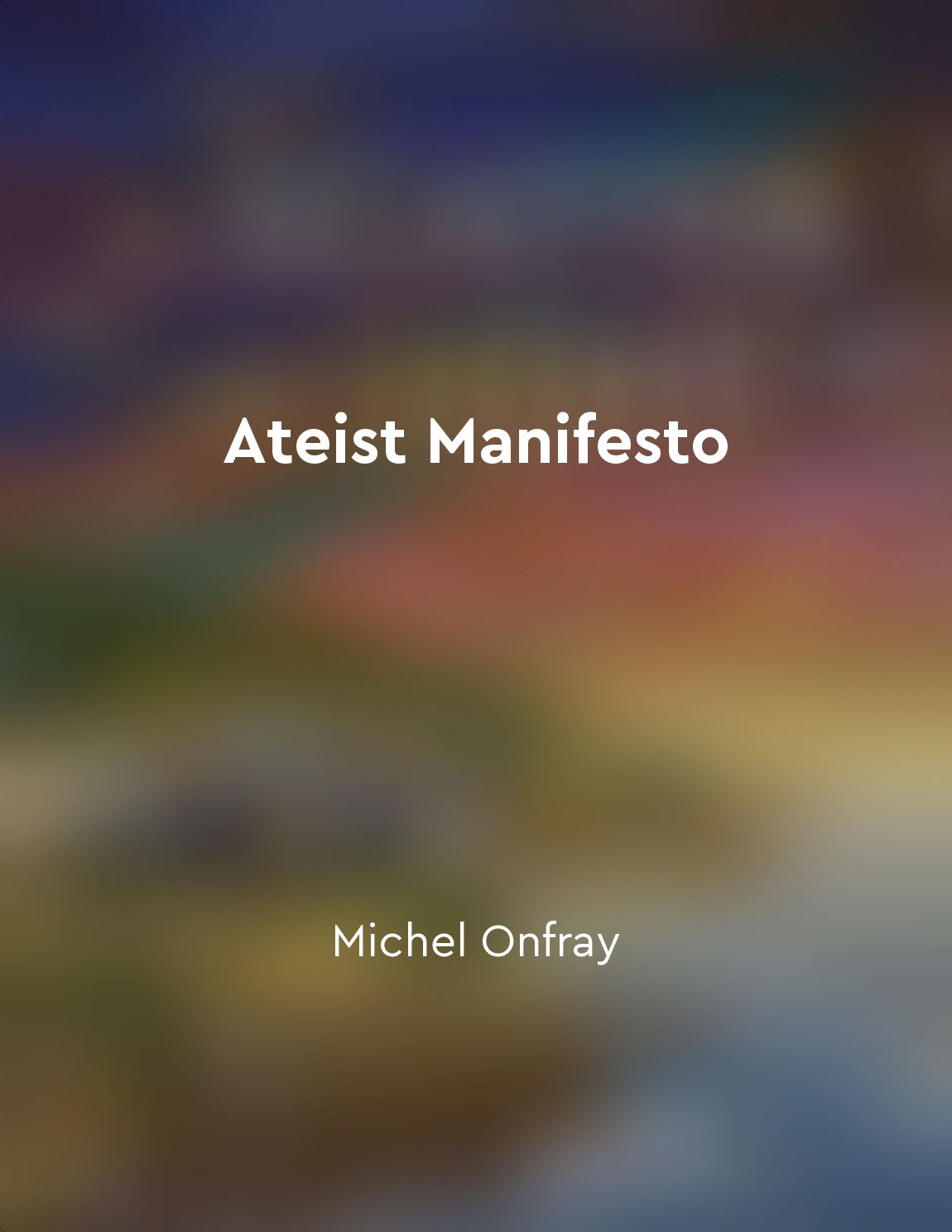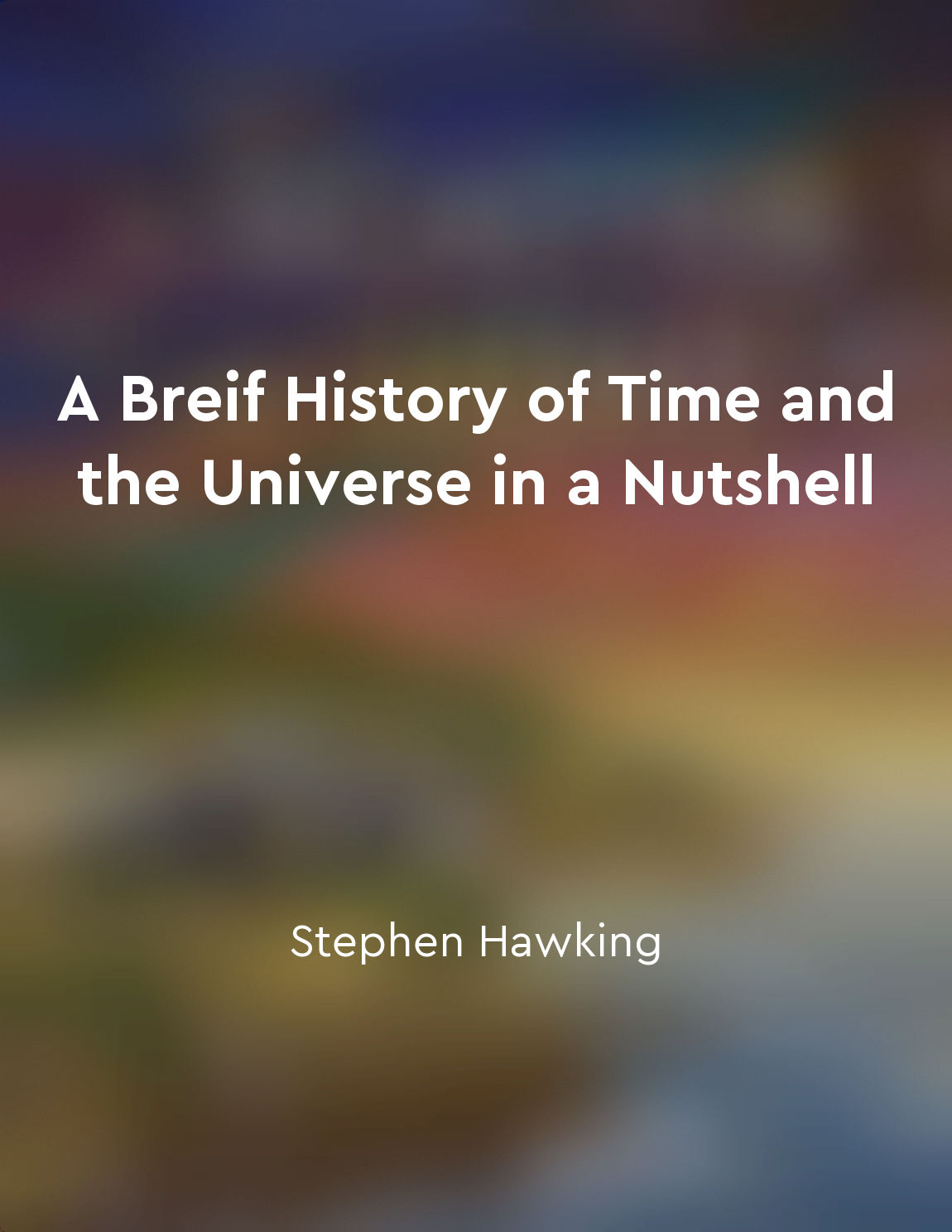Science can affirm the existence of a divine creator from "summary" of Finding God in the Waves by Mike McHargue
The idea that science can affirm the existence of a divine creator may seem contradictory to some. After all, science is often seen as the antithesis of religion, with its emphasis on empirical evidence and rational inquiry. However, this dichotomy between science and religion is not as clear-cut as it may seem. In fact, many scientists and theologians argue that science and religion can coexist, and even complement each other, in our understanding of the universe. One way in which science can affirm the existence of a divine creator is through the study of the natural world. The intricate design and complexity of the universe, from the smallest subatomic particles to the largest galaxies, point towards a higher intelligence at work. For example, the fine-tuning of the physical constants of the universe, such as the strength of gravity and the speed of light, suggest that the universe was designed with a specific purpose in mind. Moreover, the emergence of life on Earth is another aspect of the natural world that supports the existence of a divine creator. The complexity of biological systems, from the genetic code to the intricate mechanisms of cellular metabolism, is evidence of intelligent design. The theory of evolution, far from undermining the idea of a divine creator, can be seen as a mechanism through which God brought about the diversity of life on Earth. In addition to the study of the natural world, science can also provide insights into the nature of God. For example, the field of quantum physics, with its focus on the strange and counterintuitive behavior of subatomic particles, has led some scientists to speculate about the existence of a higher dimension beyond our physical reality. This idea of a transcendent realm, beyond space and time, is reminiscent of the concept of God in many religious traditions.- The relationship between science and religion is a complex and multifaceted one. While there may be tensions and disagreements between the two, there are also opportunities for dialogue and mutual enrichment. By approaching the question of the existence of a divine creator with an open mind and a willingness to engage with both scientific evidence and religious insights, we can deepen our understanding of the mysteries of the universe and our place within it.
Similar Posts
Doubt is a necessary component of critical thinking
In the pursuit of knowledge, doubt plays a crucial role in shaping our critical thinking abilities. It is through the act of qu...
Man is a complex being
Man is not a simple being. His nature is intricate and mysterious. His body is composed of numerous cells, tissues, and organs ...
Religious faith is a barrier to progress and enlightenment
Religious faith, according to Dawkins, inhibits progress and enlightenment. This is because faith is based on belief without ev...

Atheists reject the need for divine intervention
Atheists do not see the need for divine intervention in the world. They do not believe in a God who interferes in human affairs...
The complexity of ecosystems
Ecosystems are richly complex entities, teeming with a multitude of interactions between living organisms and their physical en...
Skepticism is essential for evaluating claims
Skepticism, a questioning attitude towards claims and beliefs, is a crucial tool for discerning truth from fiction in a world f...

Inflation theory explains rapid expansion
Inflation theory provides a possible explanation for the rapid expansion of the universe in its early stages. According to this...

The burden of proof lies with those making extraordinary claims
According to Richard Dawkins, when someone makes an extraordinary claim, it is their responsibility to provide evidence to supp...

